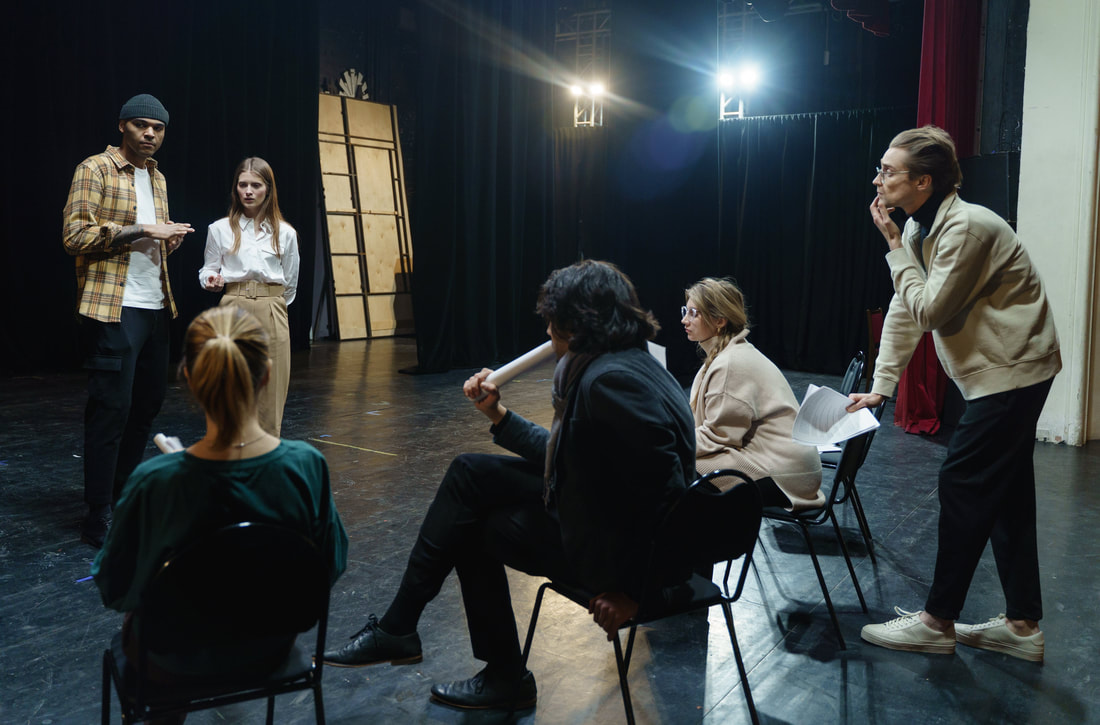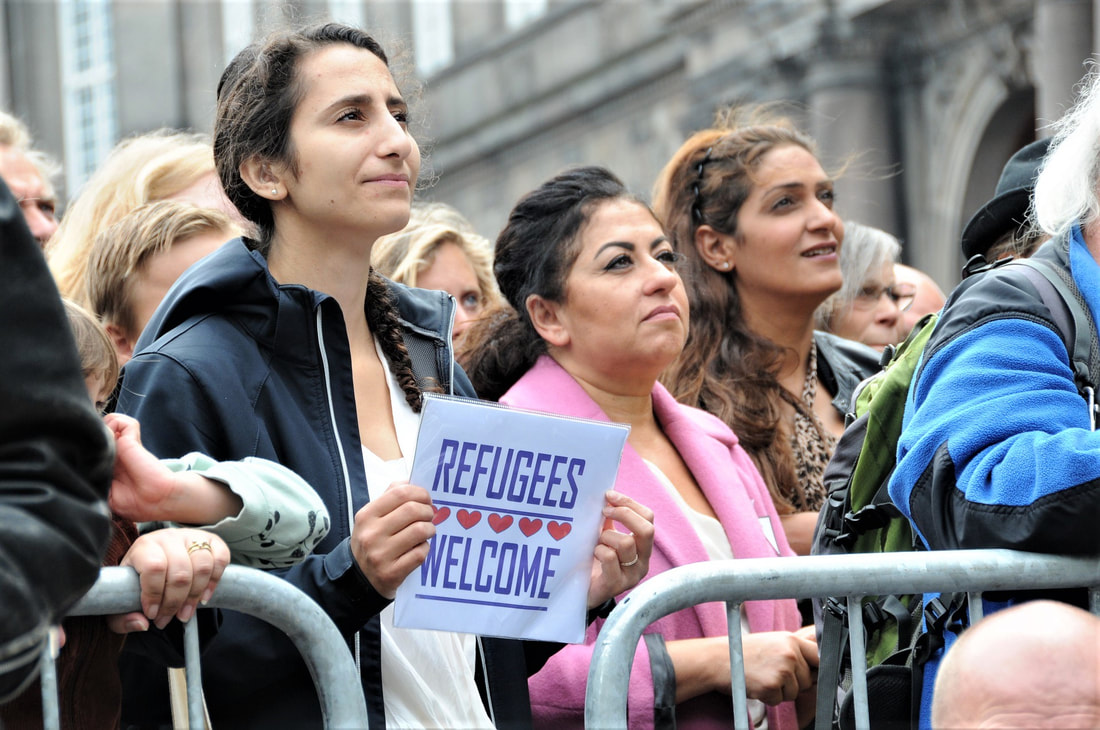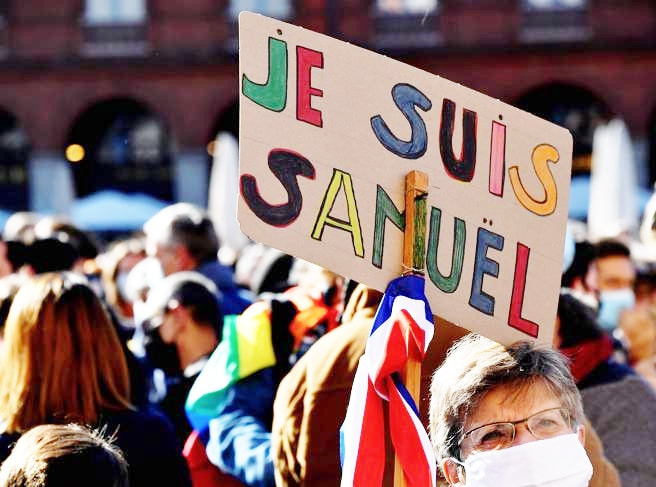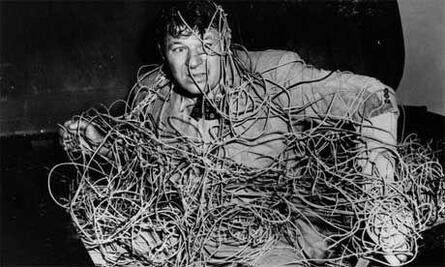|
‘You could start a fight in an empty room, mate.’ (Allan Jones) I’ve never sought conflict. Far from it. I much prefer harmony and peace. That said, however, I can’t escape a similar calling to that which Martin Luther King once heard: ‘Stand up for righteousness! Stand up for justice! Stand up for truth!’ It’s a call that burns deeply inside of me and has done, as far as I can remember it, for my entire life. I’m pained to admit that I haven’t always followed that voice anywhere near as courageously as MLK. I haven’t always handled it with his astonishing humility and love. I’ve stayed silent when I should have spoken up or spoken up when I should have stayed silent. My words have stumbled out clumsily. I’ve caused pain where I meant to bring healing and hope. Yet, at times, this vocational stance has proved authentic, valuable and worthwhile. In my 30s, I worked for a large UK charity in the health and social care sector. As an idealistic young radical, I challenged the leadership team on numerous occasions when I believed we were compromising our values. I tried to do this with prayer and humility and out of a genuine desire to build relationship and trust. On one occasion, the leadership team decided, in view of limited budget, to increase only senior leadership salaries until it had secured sufficient funding to increase frontline staff salaries too. I argued vociferously that we should do the exact opposite – and to freeze my own salary as a first step. On another occasion, the leadership team decided to reserve all spaces in its small head office car park for executives only, given that they didn’t have time to drive around to look for parking places elsewhere. I advocated passionately that, especially in the winter months, the spaces should be reserved for female and other vulnerable staff or visitors so that they wouldn’t have to walk along dark city streets at night to their cars. On yet another occasion, the leadership team recruited a ‘hatchet man’ on temporary contract to implement a tough restructure with associated redundancies. I protested that this blunt way of approaching the change would damage relationships, engagement and trust. At times, I imagined my challenges and counter-proposals were met with deafening silence or heavy sighs – especially as I wasn’t a senior leader at the time. Nevertheless, when a serious crisis broke out between the leadership team and entire middle management, both sides to the conflict invited me to mediate as ‘the only person they could trust’. The chief executive, a man of remarkable humility, took me into his confidence and treated me like a respected thought-partner. When I moved on, the company secretary wrote to me to say he had never encountered such integrity. Even the dreaded ‘hatchet man’ wrote that he wouldn’t hesitate to employ me alongside him in any future role. Pray with humility – take a stance – speak the truth in love.
16 Comments
‘For me, revolution simply means radical change.’ (Aung San Suu Kyi) I heard a well-known pop psychologist on the radio this week, talking about his new book about how to make your New Year’s resolutions stick. He invited the listeners to buy his book in order to learn more. I didn’t do that, but it did bring to mind a number of things I’ve noticed over the years as I work with people, teams and organisations. I will share a couple of insights here that may be of interest and useful – and I promise not to ask you to buy anything. The first is how hard it can be to make significant and sustainable changes to habitual patterns of thought and-or behaviour. A wise friend, Ian Henderson, illustrates this simply by inviting people to fold their arms. Next, he invites them to fold their arms in the opposite direction. (I found this harder than I had imagined). He goes on to invite them to reflect on what routine they always use to dry themselves after a shower. We are creatures of habit. That’s OK when the routines serve us and-or others well. If, however, people become trapped in, for instance, patterns of tension or stress, if often demands more than fresh thinking, determined effort or will-power to change it. So, here’s the second. Try disrupting the physical context in which it takes place; for instance: meet in a different room or location; use different chairs; sit in different places to where you normally sit; stand up rather than sit down. I worked with a team that felt trapped in conflict. They invited me to help them work through it so I asked that we hold our first meeting where and at the time at which they normally met. When we did so, I asked them where they normally sit, including in relation to each other. (‘Exactly where we are now’). At the next meeting, I changed the time and, before participants arrived, rearranged the room completely, then invited them to sit somewhere different. The shift in group dynamics was remarkable. Disrupting the times and room configuration created enough of a change to enable the team to hold a different spirit, style and type of conversation. This, in turn, helped team members to relax enough to consider and create new possibilities. It released the stuck-ness and enabled a breakthrough of sorts that wouldn’t have been possible by thinking or talking alone. (Like this idea? Look out for my new book…) You arrange to meet with a colleague and, on the afternoon of the appointment, she neither turns up nor cancels it. It can feel disappointing or frustrating, especially if you had spent ages preparing for it, or had rescheduled other things to make room for her in your diary. There may be, of course, all kinds of extenuating circumstances that had prevented her from arriving or letting you know. We could imagine, for instance, that her car had broken down on route, or that she had got stuck in traffic in an area with no mobile phone signal. She might have been held up in another meeting that overran and from which, for whatever reason, she had felt unable to excuse herself. Feelings of hurt or resentment can arise, however, if we allow ourselves to infer deeper meaning and significance from the no show. This can be especially so if it forms part of a wider and repeated pattern of experiences. Could it be, for instance, that her unexpected absence (again) is revealing a subtle and subliminal message such as, ‘Spending time on A is more important to me than spending time with you on B.’ Or, beneath that, ‘I believe my work on A is more important than your work on B’. Or deeper and worse still, perhaps, ‘I’m more important than you.’ The latter could well leave us feeling devalued and disrespected and, if unresolved, damage the relationship itself. I worked with one leader, Mike, who modelled remarkable countercultural behaviour in this respect. If Mike were in a meeting that looked like it may need to overrun, he would: (a) pause the meeting briefly (irrespective of how ‘senior’ or ‘important’ the person was whom he was with); (b) speak with whomever he was due to meet with next (irrespective of how ‘junior’ or ‘unimportant’ that person was); (c) check if it would be OK with them to start their meeting later or, if needed, to defer it; and (d) take personal responsibility to resolve any implications that may arise from that rescheduling. Needless to say, Mike’s integrity and respect earned him huge loyalty, admiration and trust. When have you seen great models of personal leadership? How do you deal with a no show? ‘When the bombs were falling like rain, Jennie stayed here with us.’ As a leader in international NGO, Tearfund, Jennie had always struck me as a quiet and unassuming person. We visited community rebuilding initiatives together in Lebanon just after the harsh and brutal civil war. Amidst shattered buildings, lives broken by sectarian conflict, aerial bombardment of the Beirut power station (just as we arrived) and Syrian ‘peacekeeping’ troops everywhere, we met with Christian leaders who recounted countless stories of heartache and hope. One of the things that struck me most was their deep reverence and respect for Jennie. Whenever she spoke, they listened with profound attention. Curious about this, I asked one of the leaders about it afterwards. He replied, ‘During the war, most NGOs withdrew because it became too dangerous for them to stay. Jennie was different. She refused to abandon us. When the bombs were falling like rain and we had nowhere else to run to or hide, Jennie stayed here with us.’ I felt completely speechless, humbled and amazed. I imagined myself in that same situation: how I would almost certainly have fled for my own safety – and have found or created very good reasons to justify myself for doing so. Yet what an impact now. The leadership and influence that Jennie was able to bring to this work by having been-with; not based on any hierarchical status, power or authority she held, but on a deep and incarnational, presence, relationship and trust. 'To err is human. To blame it on someone else shows great management potential.' That made me laugh! It’s a fun variation of Hubert H. Humprey’s, ‘To err is human. To blame someone else is politics.’ But wow – how easy it is to deflect and project our own faults and failures outwards onto others. We see it happen all over the place, from interpersonal relationships to international relations. It’s a way of defending ourselves; of trying to avoid or escape the costs of responsibility; of promoting ourselves; of appearing innocent or superior. It’s about helping us to feel good about ourselves and-or wanting someone else to feel good about us. It's quite tricky if we don’t know we’re doing it – and it can lead to potential high-risk consequences. ‘Self-deception is like this. It blinds us to the true causes of problems, and once we’re blind, all the solutions we can think of will actually make matters worse.’ (Arbinger Institute: Leadership and Self-Deception, 2000). This poses a difficult question: how to deal with our blindness if we don’t know we’re blind? And what if, if we’re honest – for whatever reason – we don’t want to know? An old adage goes: ‘There are none so blind as those that won’t see.’ Ignorance is bliss? I’ll start with the last question first. If I’m working with a person in coaching or a group in action learning and I sense resistance in this area, I won’t push too hard. It could, for instance, trigger repressed trauma or suppressed anxiety. Instead, I may pose an invitation, e.g. ‘Is this something you would find useful to explore further? What, for you, would be the potential benefits of exploring this, or the potential costs of not exploring it? If you were to explore this, what support or challenge would you need from yourself, me and-or others?’ It’s their call, their choice. Next to the first question. This touches on a field known as critical reflexivity. It’s like holding up a mirror to ourselves rather than fixing our gaze elsewhere or onto others. We can think of it as something like this: ‘What within me – e.g. in my own past, culture or world – is influencing what I’m thinking, feeling and doing now?’ This could include, for instance, our beliefs, values, hopes, fears and expectations. It could also include hidden vested interests; that is, things we want to protect or preserve and-or to acquire or achieve. Such influences act as subconscious filters. In coaching and action learning, I work with people and groups to help them learn to pose searching questions to themselves in a spirit of open curiosity and discovery, e.g. ‘Who or what is holding my attention in this relationship or situation? How am I feeling? Who or what am I not-noticing? What assumptions am I making? How is my past influencing my present? Who or what matters most to me now? How might I be evoking this response in the other party? What am I willing to take responsibility for? What do I want or need? What am I willing to stop, start, change or compromise?’ The outcomes and benefits of this approach can be truly transformational. It calls for humility, courage, authenticity and a willingness to exercise personal leadership and agency, yet can open up all kinds of fresh possibilities – and hope. Imagine, for instance, to approach an adversary, prayerfully, in the midst of conflict: 'We are in such a mess. I'm sorry...and, as I look at how we got here, I could have handled my part in this better...' It’s a stark contrast to avoidance, accusation and finger-pointing. What a possibility to co-create a different relationship – and a different future. (See also: Spots; Art of Deception; Stealth) Turn on the TV and you will see heart-breaking scenes of streams of desperate people, frightened, shell-shocked and displaced by war, fleeing within Ukraine or escaping across crowded borders into neighbouring countries. It’s a tragic and all-too-familiar scene. Not that long ago, we witnessed similar images of dispossessed and traumatised people, at that time clinging together in crowded boats or walking on long roads, trying to reach safety away from the ravages of a brutal war in Syria. It's tempting, in such circumstances, to compare and contrast. Why, for instance, is Poland throwing its doors wide open to Ukrainian refugees whereas it was decidedly reluctant to do so for Syrian refugees? Is this evidence of endemic racism? It is because Ukrainians are white, because they ‘look like us?’ – as more than one TV reporter asked this week. These are important questions... and they also risk pitching one set of refugees against another, as if competing for empathy and support. I’ve had the personal privilege of working in the UK alongside asylum-seekers and refugees from countries as diverse as Afghanistan, China, Congo, Egypt, El Salvador, Eritrea, Honduras, Iran, Iraq, Kurdistan, Mali, Mexico, Somalia, Sudan, Syria, Turkey, Vietnam and Yemen. Up-close, every person is unique, has a name, and carries his or her own lived experience, his or her own individual story. Step back, and we can discern patterns shaped by e.g. culture, history, language, narrative and geopolitics. In some significant respects, I believe European public discourse concerning the Ukrainian refugee situation is different to that in 2015. Geopolitical factors include: Ukraine borders directly with Europe, vs Syria lays at a geographical distance; Ukraine is perceived primarily as an invasion by a foreign power, vs Syria was viewed primarily as a civil war; Ukraine is perceived in simple terms as a ‘hero’ against a ‘villain’, vs Syria was perceived as a complex conflict between multiple ‘villains’. Cultural factors include: Ukrainian refugees are perceived as culturally- and pro-European, vs asylum-seekers in 2015 who came from a diverse range of countries and cultures – often perceived as hostile to European liberal values and cultures; Ukrainian refugees are primarily women and children and, therefore, considered most-vulnerable and least-threatening, vs asylum-seekers in 2015 were perceived as primarily men and, therefore, considered least-vulnerable and most-threatening. If we are willing to pause and reflect openly, honestly and critically, we can see that the stance we take reveals all kinds of underlying personal and cultural beliefs, values, assumptions and biases – including whom we consider worthy, or not, and why. The media plays a very powerful role since most of what we believe and think we know about asylum-seekers and refugees is mediated via media. The ‘news’ is a blend of info and drama, with an agenda. Let’s not fan the flames of a refugee war. (For further reading in this area, see: Alexander Betts & Paul Collier, Refuge: Transforming a Broken Refugee System (2018)) ‘Truth is the first casualty of war, they say. In fact, it’s more often freedom and reason.’ (Brendan O’Neill) I was wrong. I didn’t imagine that Russia would actually launch a full-scale assault on Ukraine. I felt sick, shocked and dismayed as the news unfolded this week. I can only imagine how it must feel for Ukrainians to find their country under attack and for Russians to discover their country has started a war. I felt near-despair too as I listened to rhetoric in the UK Parliament and media in the immediate wake of the invasion, denouncing neo-fascist Russian nationalism and imperialism whilst, at the same time, silencing any voices of dissent here with words like ‘appeasement’ and ‘treason’. There are insights from various psychological fields that can help us, yet we know from arenas such as cognitive and human givens therapies that our receptivity and ability to reason is impacted profoundly when overwhelmed by feeling. Emotions like anger, resentment and fear are running high at the moment; and understandably so because this crisis and all that it could mean are very real and being experienced by real people, families and communities here-and-now – and that makes it hard to think clearly. Yet we must think, and pray, and act with wisdom, and quickly. I can only guess what’s in Putin’s mind. The geopolitical dimensions to this conflict are complex and well beyond my ability to know or understand. I can, however, speak as a citizen or the West. I spent many years working closely with an anti-Nazi activist in Germany. I learned that we need to pay very careful attention to the conditions in which otherwise insane decisions will appear and feel rational. Hitler and the Nazis were supported and elected in Germany by many with great enthusiasm against a specific contextual backdrop: in Gestalt psychology, the ‘ground’ that gives rise to a ‘figure’. The ’ground’ out of which the current crisis has developed is very complex indeed. It includes: a long cultural history in Russia of autocratic leadership; the brutal and devastating Nazi invasion of the Soviet Union from (geographically) the West; a loss of Russian power and self-esteem following the collapse of the Soviet Union; the subsequent expansion of the NATO military alliance eastwards towards Russia’s borders; the expansion of the EU economic block eastwards to (potentially) incorporate Ukraine; a corresponding and growing sense of vulnerability and resentment in Russia. Does this suggest that the West has somehow caused the war in Ukraine? No. Correlation of these factors does not mean causation. Putin has made his own decisions. Does it suggest that the West has contributed to creating the conditions under which Putin’s decision became more likely? That’s a question I believe, in the midst of our justifiable outrage at Russia’s unjustifiable actions, we would do well to consider with prayer, humility and critical reflexivity. We stand at the edge of a dangerous precipice and, to move forward, we need very different thinking to that which brought us here. Adrian’s a guru on the negotiation skills front. ‘Say what you want, not what you don’t want’, he advises, wisely. If it’s a complaint or a dispute, ‘State what would resolve it for you’. It’s a solutions-focused approach that makes desired outcomes clear and explicit. ‘Too often’, he says, ‘we leave the other party to second-guess what we want. We raise an issue or a problem – but we don’t let them know what we’d prefer or what would make a happy resolution for us.’
Imagine, for instance, contacting a supplier who has provided you with faulty goods or substandard services. ‘I’m very disappointed that X arrived broken’, or ‘I felt frustrated by your lack of attention to customer care.’ These may be fair comments and we might well assume that the supplier knows what would restore our confidence. Try instead, ‘I’d like a replacement delivered by X (date) please’; ‘I’d like a full refund on my room today and X (%) discount next time.’ A similar principle applies when navigating relationships. Tensions or unresolved conflict are common themes in coaching. A person may feel hurt or frustrated, become fixated on a problem, and lose sight of the relationship they hope for. To help someone to envision a different future – and how they may frame a conversation in terms of what they do want – can be transformational. ‘This is how I’d like us to work together. How would that be for you?’ The brutal murder of Samuel Paty, a teacher in France on Friday, spun freedom of expression back into the media spotlight. Freedom of speech is, after all, a bedrock of Western democracy – not only the safeguarding of the expression of thoughts, feelings, and opinions but also, critically, the right and opportunity to be exposed to those of other people and groups too. The same principle applies in liberal education: learning, development, creativity and innovation emerge from the interaction of diverse insights, experiences and ideas; sometimes awkwardly or angrily if they clash, yet vital for healthy growth. Emmanuel Macron has described the current Kairos moment as an existential crisis: a fundamental conflict between secular, liberal European values and those of radical Islam. A broader cultural backdrop is, however, a struggle between freedom of speech and freedom from harm, where the latter includes freedom from offence. Brendan O’Neill commented last weekend that, in France, “cancel culture turned murderous…the (teacher’s) beheading was a militarised expression of (it).” The silencing of a voice, the no-platforming of a dissenting view, can lead to dire unintended consequences. Coming from a very different place politically to O’Neill, Douglas Murray struck a strikingly similar chord in, ‘The Madness of Crowds’ (2019/20): “We are going through a great…derangement”. Cultural and technological upheavals are driving humanity at breakneck speed into uncharted territories where many hitherto beliefs, values and assumptions are being stress-tested to their limits. Grasping at simplistic and polarising stances – no matter how irrational – is one way to feel safer and more purposeful in the world. So, question: What do these feverish times call for from us, as leaders, coaches, trainers and OD? ‘I know you think you understand what you thought I said but I'm not sure you realize that what you heard is not what I meant.’ ‘I guess I should warn you, if I turn out to be particularly clear, you’ve probably misunderstood what I said.’ (Alan Greenspan) You may have had that experience of communicating something you thought was perfectly clear, only to discover that the other person got the completely wrong end of the proverbial stick. How is that possible? Was it something in what you said or, perhaps, how you said it that influenced how the message was received, distorted or misunderstood? Whatever the cause, when it does happen, you can both feel bemused, confused or frustrated – and the consequences can be difficult, damaging or dangerous. I want to suggest this occurs mainly as a result of mismatched beliefs, values, assumptions and emotions in four critical areas: language, culture, context and relationship. There are, of course, situations in which a person may wilfully misinterpret what you said or simply choose to ignore you. However, I’m thinking more here about when it happens inadvertently and out of awareness. It’s something about what influences (a) what we infer and (b) how we interpret, when we communicate – so that we can improve it. The language question means the same words can mean different things to different people, even in the same language group. The culture question means the assumptions I make appear obvious or self-evident in the groups or teams I belong to. The context question means I interpret what you say based on my own perspective and understanding of the situation. The relationship question means I filter what you say based on what I perceive and feel about the nature, dynamics and quality of our relationship. So – this where a spirit of inquiry can help: Check what the other has heard and understood. Notice the language they use. Be curious about their cultural and contextual perspectives. Sense how they are feeling. Build trust. |
Nick WrightI'm a psychological coach, trainer and OD consultant. Curious to discover how can I help you? Get in touch! Like what you read? Simply enter your email address below to receive regular blog updates!
|













 RSS Feed
RSS Feed